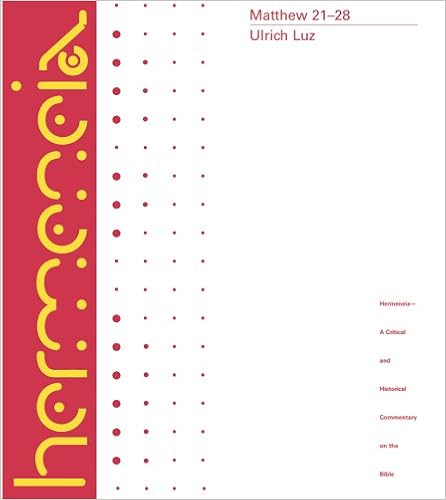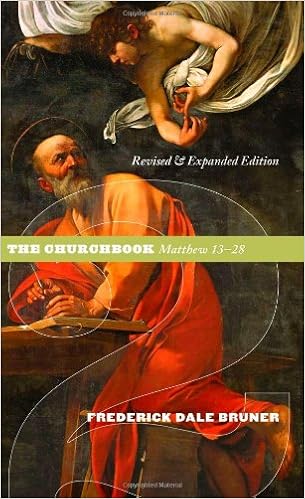

The Rich Young Ruler: Matthew 19 and
the History of Interpretation
The story of the young rich ruler has puzzled many
people for generations. Not least is the
question of wealth, money, and possessions, what does Jesus mean by commanding
the young ruler to sell all his possessions and give to the poor? None of us would counter that giving to the
poor and giving up some of our earthly possessions is a bad thing. Yet, the point revolves around “all.” Is this story a command for both the rich
young ruler and us to give up all to follow Jesus or is there another way of
seeing it? The history of interpretation
of this passage is quite interesting, Frederick Dale Bruner writes,
“The History of Interpretation of the Rich Young
Ruler is fascinatingly laid out in Luz (Matthew 21-28: A Commentary, Hermeneia,
Vol III pp. 131-136, and can be roughly summarized like this:
(
(a) The
early church saw Jesus addressing all and
took the text literally; rather,
early on, however, as we see in the third century Clement of Alexandria above,
an “attitude ethic” began to intrude
(Jesus wants to rid us of the
attitude of covetousness, not of actual possessions)
(b) In
the post-Constantinian and early medieval periods Jesus was understood as
giving counsel to some(the religious),
not commands to all
(c) Then
in the late medieval period the allegorical
interpretation entered, most perniciously when the Rich Man was interpreted
allegorically as a representative of the Jews
(d) In
Reformation interpretation the rich
man was explained as an allegory (!) or type, too – namely of the “works-righteous”
person, and so our text was used to convict people spiritually, not change them
economically. Luther inverted the text
so entirely that now it does not mean divestment, it means (in Wesley’s phrase)
“earn all you can, save all you can, give all you can.” Luz protests, “One
cannot more thoroughly misunderstand the Command of Poverty in the text.”
(e) Post-Reformation
and modern interpretation saw our text as thoroughly particular, for only
certain people or special cases, and not for all disciples.
Luz comments, “We Protestants must learn anew how
and why, for Jesus and original Christianity, there was clearly a fundamental
tension between the kingdom of God and wealth. We must learn anew that dealing
with money is a burning center of faith… The obedience of disciples must
profoundly alter our dealing with our own money, because money rules the world
and discipleship to Jesus is a protest of love against this government.”
Comments
Post a Comment